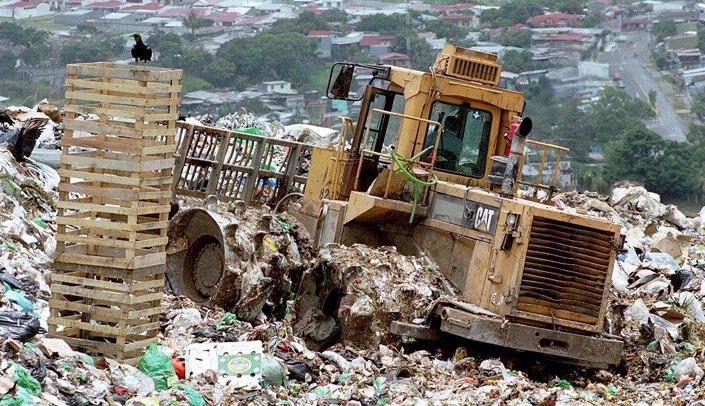When most people think of being green, many think of recycling — and it is an easy, first step to being more sustainable. Goods are turned back into products, so new resources don’t have to be used while simultaneously sending that same material to the landfill. Yes, reducing and reusing is better than recycling, but there are times when those options aren’t possible, so then it’s time to recycle.
Did you know the EPA estimates 75 percent of what Americans throw away is recyclable? Unfortunately, the national average of materials diverted from the landfill is only 34 percent and Omaha is a shockingly low 11 percent. The med center is better at 19 percent, but we still have some work to do to get to the 35 percent goal that’s stated in our Sustainability Master Plan.
The Waste Less. Recycle More. @ Lunch campaign started last week and asks you to take the simple pledge to recycle the materials from your lunch — frozen food trays and boxes, soup cans, bottles and plastic utensils. Almost everything in a common lunch is recyclable. If you have questions on what can be recycled, see our website or watch this short video.
Have you ever wondered what impact your recycling has? It seems like such a simple action and a small item, can it really have a big impact? Yes, it can. Your aluminum can is one of the 6,700 cans used every second and 200 billion used every year. It takes more energy to mine and produce aluminum than any other metal, yet we landfill enough to provide the auto industry with all the material it needs to build a year’s worth of new cars, which is valued at $1 billion. However, recycling uses only 5 percent of the energy needed to create the same can from mined aluminum and they can be back on the shelf in six weeks.
Plastic is no better. Americans throw away 25 million bottles every hour. New production uses crude oil and other chemicals leading to pollution, which has a negative impact on health, including reproductive and endocrine issues, obesity and cancer. Now researchers are seeing long-term effects in children when they are exposed to pollution.
Meanwhile, recycling creates 1.1 million jobs in the United States (four jobs for every one in the disposal industry) and $37 billion in annual payrolls, while reducing operating expenses on campus.
So what are you waiting for? Recycle More. @ Lunch!

Melanie it would be so much more convenient if we were allowed to put any recyclable items in our personal blue bins in our offices. We are told you can only put paper, no cardboard, not plastic bottles or cans. I'm sure if we could it would increase the volume of what is being recycled also.